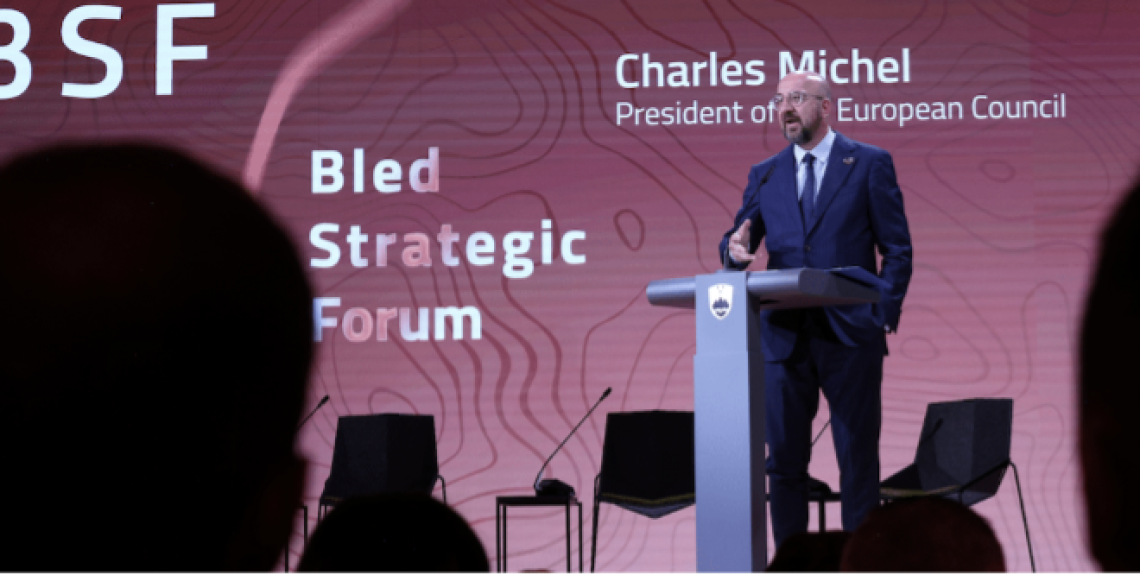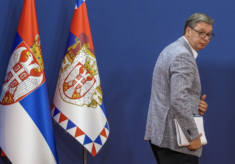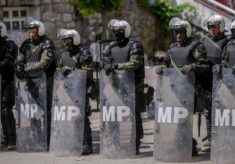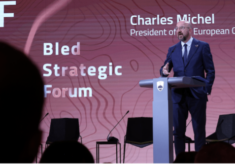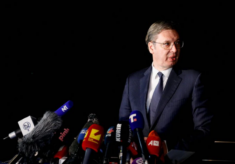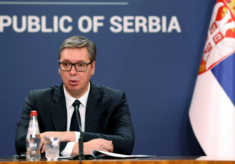In a significant development, a prominent EU leader has pledged to facilitate the expansion of the European Union into the Balkan region by 2030. This ambitious promise, however, was met with scepticism by the leaders of the countries in the Balkans, which have been waiting in an EU membership line for more than 20 years.
Addressing the attendees of the Bled Strategic Forum, in Slovenia, Charles Michel, the President of the European Council, emphasized the necessity for the European Union to enhance its “credibility” regarding its commitment to expanding into the Western Balkans in times of profound crises for the EU. The war in Ukraine “is not just devastating Ukraine: this war has a profound impact on the future of our continent,” Michel noted.
In Bled, Michel stressed the significance of discussing the “timing and homework” related to enlargement. Michel expressed his belief that both the EU and the Balkan nations should be prepared to be ready “on both sides — to enlarge by 2030.” “This is ambitious, but necessary. It shows that we are serious,” Michel said, adding that the EU will however not tolerate to include new members with open conflicts in their ranks. “There is no room for past conflicts within the EU,” Michel noted, as a clear reference to the Serbia-Kosovo issue.
The audience in Bled included the leaders of Albania, Bosnia and Herzegovina, Serbia, Kosovo, Montenegro, North Macedonia, all official candidates for EU accession. The Balkan countries are in varying stages of their negotiations for EU accession. Progress has stalled for many as they grapple with the implementation of core EU prerequisites for membership, encompassing aspects such as the rule of law, democratic elections, and media freedom.
Even if Michel’s address at Bled was widely interpreted as significant, marking one the first instances of an EU leader specifying a concrete accession date for countries within the region, political leaders in the Balkans have collectively conveyed a prevailing sense of doubt regarding the timeline proposed.
According to outgoing Montenegrin Prime Minister Dritan Abazovic, for instance, the year 2030 appears to be “distant,” and while nations within the region possess clear objectives, there are instances when it is the EU leadership itself that seems uncertain about their own intentions, he claimed. Serbian Prime Minister Ana Brnabic contended that the region has grown weary of the continual shifting of objectives from EU side and the prevailing perception that the efforts of these countries consistently fall short of expectations. Furthermore, she claimed that Kosovo is still part of Serbia, implicitly excluding any long term and definitive solution on the issue, while Kosovo’s PM Kurti accused Belgrade of confusing “reality and fantasy” when speaking about Kosovo as part of Serbia.
North Macedonia’s Prime Minister Dimitar Kovacevski found optimism in Michel’s affirmation that the EU intends to “affirm its commitment to expansion,”. However, even Kovacevski highlighted that the enlargement process has become excessively protracted and he pointed out that back in 2003, when the EU formally affirmed the European prospects for the Western Balkan nations, North Macedonia was known as Macedonia, and Montenegro and Kosovo had not yet gained their independence. Also, Albanian Prime Minister Edi Rama responded to the 2030 deadline with a touch of cynicism. Drawing a parallel to the swift advancement of Ukraine’s membership aspirations following Russia’s aggression, he joked about the prospect of determining which entity in the Balkans should provoke the other to expedite the enlargement procedure.
In a final development that might amplify skepticism within the region, a European Commission spokesperson commenting Michel’s statements conveyed on that the enlargement process is predicated on merit and not by deadlines, as the one mentioned by Michel. And the Commission emphasized that candidates should attain EU membership only when they have adequately prepared for it, before or after 2030.

